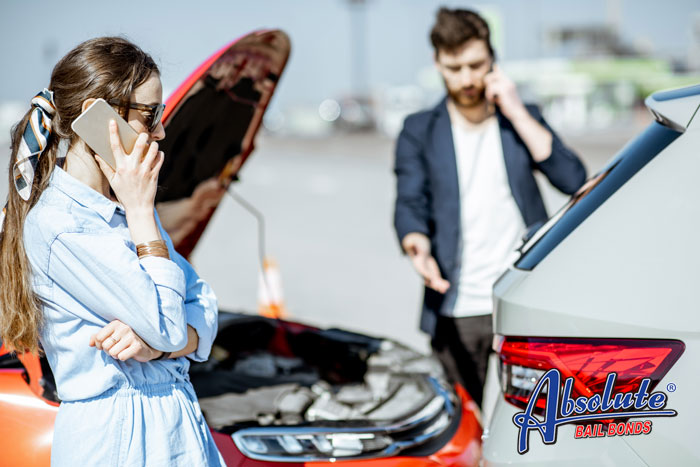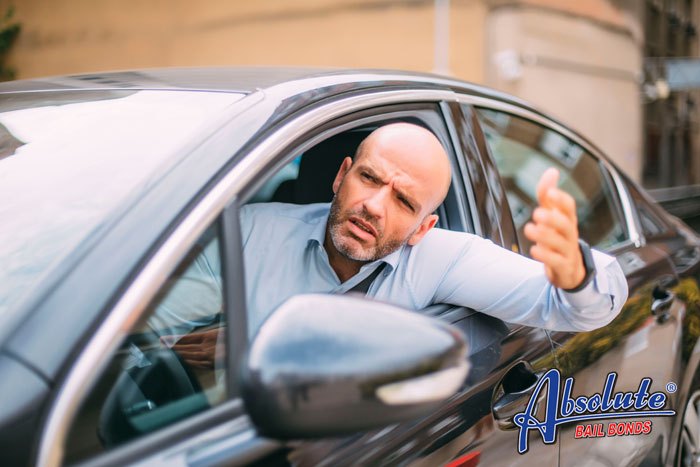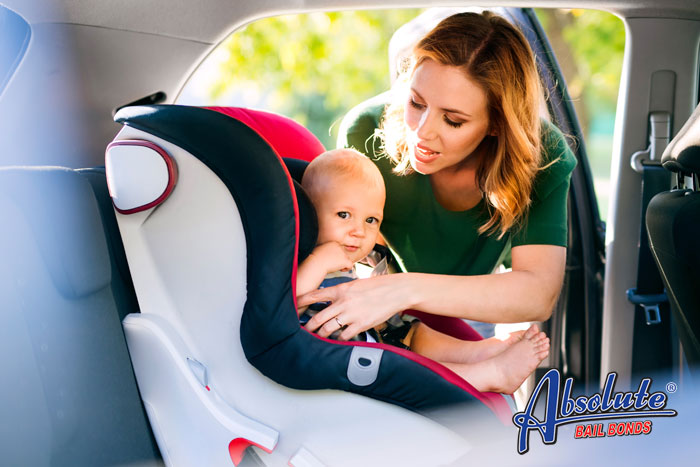
Vaping in California
Over the past ten or fifteen years, vaping has become extremely popular. There are several reasons for this, including the idea that vaping is cleaner, cheaper, and might be a little safer than smoking. The fact that you can get vapes in interesting flavors that simply aren’t possible with traditional cigarettes is another reason so many people have started vaping.
As vaping grows more popular the state feels increasing pressure to create vaping laws. These laws are very similar to smoking laws because there is a great deal of concern about the potential health risks.
While some of these vaping laws impart consumers, most are designed to crack down on the sale of e-cigs.
Additional taxes aren’t the only things business owners who sell vaping supplies have to worry about. The state has also set things up so that any business that markets e-cig and other vaping supplies has to be properly registered, which includes safety inspections. The registration fee must be paid every single year if the business wishes to continue selling e-cigs.
At this point, if you’re not 21 or older, you can’t purchase e-cigs are anything connected to vaping. The hope is that by raising the minimum age, fewer people will start vaping.
The places you’re allowed to vape are also restricted. Vapers are expected to follow the same rules as smokers. You aren’t allowed to smoke in/near government buildings, including schools. Additional places where you’re not allowed to vape include commercial warehouses, hotel lobbies, and stores. If you’re self-employed but routinely have clients in your office/home/workspace, you’re not allowed to vape there.
Getting caught vaping in an area where it’s prohibited will cost you hundreds of dollars.

Down Powerline Safety tips
There are a variety of ways a power line can come down including severe winds, natural disasters, and even an auto accident. The reason the power line is down isn’t important. The important part is knowing how to stay safe when you find a downed power line.
Don’t assume that just because the downed power line isn’t sparking or because it’s coated with rubber that it’s safe. When it comes to power lines, always act like it’s a live wire and that touching it will result in a fatal shock. Power lines aren’t something you should ever take a chance on.
As soon as you spot the downed power line, you need to change the way you move. Instead of lifting your feet when you walk, start shuffling. Keeping your feet, especially if you’re wearing rubber-soled shoes, on the floor increases the odds of your remaining grounded and safe from the electricity.
Most people assume that the damaged power line is the only dangerous thing. It’s not. When a power line goes down, the electricity actually fans out, which means that anything in the area could potentially deliver a deadly shock. Stay at least 100 feet, the length of two semi-truck trailers, away from the line and don’t touch a single thing. The further you are from the line, the safer you are.
As long as you are safe, remain in the area. Your responsibility while you wait for the proper authorities to arrive is to warn anyone who approaches of the danger and prevent them from coming into contact with any stray voltage.

Early Warning Signs that Your Partner is Dangerous
One of the things many domestic abuse victims say is that they never thought that it could happen to them. Another comment is that they simply didn’t recognize the early warning signs.
The truth of the matter is that many people don’t know that most relationships have red flags that could serve as important signs that it’s time to get out of the relationship before your partner becomes dangerous. Heeding these early red flags and removing yourself from the relationship early is the best way to preserve your mental and physical health.
Frequent Bursts of Aggressive Behavior
If your partner frequently succumbs to bursts of aggression, particularly if it’s aimed towards you, a pet, or others, treat it as a red flag. Yes, everyone has bad days. Yes, everyone does get angry from time to time, but when that aggression causes a person to punch holes in a wall, kick a dog, make a threat, or grab you, your partner hasn’t learned how to properly manage their anger.
Possessiveness
The fact that your significant other gets jealous when others are around you might seem cute at first. It might even make you feel more loved, but possessiveness can go to far. Signs that your significant other’s jealousy is becoming dangerously possessive include that they think you’re deliberately trying to make them jealous, that the jealously leads to physical and verbal aggression, that they are actively trying to cut you off from your friends and family.
Many abusers demonstrate possessive behavior early in the relationship. In many cases, it’s the first red flag that the relationship will take a dangerous turn. Take the early signs of a possessive nature as an early indicator that you should end the relationship sooner rather than later.
Manipulation
One of the hardest red flags to catch is manipulation. Many abusers are geniuses when it comes to manipulation. They are so good that it can be difficult to realize that you’re being manipulated. If you frequently find yourself doing things you wouldn’t normally want to do, or if you notice that your partner constantly uses emotions, particularly guilt, to change your mind about situations, people you like, and attending events, they’re a manipulator and you should proceed with care.
Pay Attention to How Friends and Family Feel About Your Partner
The odds are good that the people who truly love you the most will be the first to notice that something simply isn’t right about your significant other. If they say that you’re changing, or that they have a bad feeling about your partner, ask them to clarify. While it’s okay for one or two friends to simply not like your new partner, if everyone mentions the same red flags, or if it’s someone who is usually an excellent judge of character, give yourself some time and space to evaluate your relationship and determine if your friends and family are right and that your partner isn’t actually as perfect as you think.
Most people automatically assume that domestic abuse situations always involve an abusive male and a female victim. The truth is that women can be as abusive as men, which is why everyone needs to be mindful of red flags when they are involved in a relationship.

Do I Have to Report a Traffic Accident?
Most of us have a weird, knee-jerk reaction to traffic accidents. We like to pretend we don’t know about them and try to put as much distance between ourselves and the traffic accident as we possibly can. This is our reaction whether we’re involved in the accident or if we’ve simply witnessed one.
When a traffic accident occurs, many of us wonder if we actually have to report it to the police.
If you’re driving any of the vehicles involved in a car accident, you are legally required to report the accident to the police.
Technically, you have 24 hours to complete a written report about the incident. All things considered, it’s in your best interest to report the accident as soon as it happens. There are several reasons for this:
- The responding officer will handle writing the written report for you
- Filing the insurance claim will be easier
- The events leading up to the cause of the accident is fresh in everyone’s mind
- You won’t have to worry about being labeled a hit and run driver
In addition to letting the police know about the accident, you need to let your car insurance company know about the accident as quickly as possible. Not only will this put you in a position to receive your claim money as quickly as possible, but if an investigation is needed, they will be able to talk to everyone involved while the details of the accident remain fresh in everyone’s mind.
But what if you merely witnessed a car accident but weren’t directly involved with it?
It’s in your best interest to make sure that everyone who was involved in the accident doesn’t need any type of medical attention and you should also plan on serving as a witness to the incident.

Is It Illegal To Brake Check?
“Brake check” is a term that refers to the act of someone slamming hard on their brakes while they’re driving in front of another driver, forcing the other driver to either slam on their own brakes or swerve out of the way. It’s often done because the driver of the lead vehicle feels the second car is following too closely, or tailgating, them. The hope is that slamming on the brakes will convince the other driver to back off. It’s important to understand that this isn’t just a light tap of the brakes. During a brake check, the driver exerts enough pressure on the brake pedal to quickly and significantly slow their vehicle. They usually hit the gas pedal equally hard and speed off.
The interesting thing about brake checks is that both the brake checking and the tailgating are considered to be examples of aggressive or reckless driving. In this particular incident, both drivers can be issued a ticket. Both actions can lead to a serious accident.
There are a couple of different reasons people tailgate. The first is because the driver is impatient and hopes that they can encourage the other driver to go faster. In this scenario, the tailgating is a form of road rage and aggressive driving. The second most common reason for tailgating is because the driver isn’t paying attention or doesn’t realize just how close they’re getting to the other car’s back bumper. In this instance, the tailgating is a perfect example of distracted or careless driving.
If a police officer observes you doing a brake check, they can nail you for reckless driving. Don’t assume that it will merely be a ticket and a fine. Depending on the circumstances, your brake check could result in you gaining a criminal record, possibly losing your driver’s license, and even ending up in a jail cell.
If your brake check results in someone getting hurt or killed, the penalties are more severe and could include the suspension of your driver’s license. It’s also likely that the injured party will file a civil case against you.
The next time you get tired of being tailgated, take a deep breath and keep your foot off the brake pedal. Remind yourself that it’s far better to be irritated than to do something that could cost you both your freedom and your means of transportation.

Mug Shots Decorating Social Media Feeds? Not Anymore!
Law enforcement agencies throughout the United States have discovered the importance of social media marketing. It’s a great way to stay in touch with the communities they trust, to gain some extra funding, and even get some important leads on open cases.
Posting mug shots on social media sites is one of the things some law enforcement agencies have done to generate extra social media content. This is a practice that California police departments will not be doing in 2022.
At the start of 2022, a new law went into effect that doesn’t straight up ban police officers from posting mug shots on the department’s social media accounts, but it does significantly limit which mug shots can be posted.
The law that restricts the mug shots police departments can post on social media is AB 1475. Governor Newsom signed it in July 2021. It goes into effect at the start of 2022.
It’s important to understand that the new law doesn’t prohibit officers from turning to social media and posting images of suspects while they are investigating a case. The only thing that changes is the police force can’t post the mug shot they took after arresting someone for a non-violent crime if that person hasn’t yet been convicted.
The reason behind the new law is simple. Some people were concerned that by posting the mug shots of recently arrested suspects who hadn’t yet been convicted of a crime, the police department was creating an environment that was full of presumed guilt. Not only would this presumed guilt make it more complicated to find an impartial jury, but it could also negatively impact the overall quality of someone’s life. All it takes is for friends, family members, and even employers to see the mug shot on social media for them to start thinking that someone is guilty of a crime that they’ve been arrested for but not officially convicted of. This type of situation can cost people valuable relationships and might even lead to them losing their job or having a difficult time finding a home.
It’s important to realize that the way AB 1475 was written still allows police departments to use social media and to post information and mug shots of fugitives, suspects the department believes to be a risk to society, and anyone who is suspected and has been arrested for committing a violent crime.
It will be interesting to see if any more laws that dictate how the police can and can’t use social media are created in the future.

Staying Safe While Online Dating
It doesn’t look like online dating is going anywhere.
This is often the time of year when people start to think about online dating. Some do this because they think the start of a new year is the perfect time to start a new relationship. Others because they realize that Valentine’s Day is right around the corner. Others decide that it’s a great time to create a new online dating profile because they hated being single during the holidays.
Whether you’re an online dating veteran or you’re just dipping your toe into the world of online dating, it’s always a good time to review safe online dating practices.
The first thing to remember is that you don’t really have any idea about who you’re talking to. Online dating is a great way to meet people, but it’s also a format that attracts a lot of predators. Choose a dating site that is upfront about its policy for keeping everyone involved safe.
If you make a match, take some time to get to know the person online before you arrange an in-person meeting. Whenever possible try to keep the conversation going through whatever means the online dating site has provided. This makes it easier to report any abuse or suspicious behavior.
Do not meet in a private or secluded area. Arrange to meet in a public place. Before going on your first date, let people know where you are going, who you are going with, and arrange for a time that you’ll check in with them and let them know that you’re okay.
Do not tell the person you’ve connected with online where you live. Make sure you eliminate any geographically identifiable items (such as your house) from the pictures you post on your profile.
If you start to feel at all uncomfortable with the other person, be it while you’re chatting on the dating site or while you’re on a real-time date with your online match, sever the connection and move on. Your safety and mental health are far more important than the few minutes of embarrassment you’ll feel while dashing away from the date.
Do not invite your online love connection to your home until you’re one hundred percent positive that they’re a good person and someone you can trust. If you have any reservations at all, keep the dates to public places. The same is true about getting into a car with them. It doesn’t matter if you’re driving or they’re driving, always travel in separate vehicles until you are confident about who you are with.
The most important thing to remember when you’re dating online is to trust your instincts. You really do know best so if something feels a little funny or unsafe it’s in your best interest to block that person and search for the next promising candidate.

California’s Child Safety Seat Laws Keep Kids Safe
All of us know that young kids have to be strapped into a safety seat whenever they’re in a vehicle. The reason for this is because those safety seats save lives. The National Highway Traffic Safety Administration estimates that properly installed car seats reduce the number of infant fatalities suffered during car accidents by 54 percent and lower the number of serious injuries sustained during car accidents by 71 percent.
Like other states, California has strict child safety seat laws. Lawmakers used data collected during accidents that involved seriously injured children and accidents that involved a child fatality to decide how they could make it safer for parents to transport their children.
If you’re driving with children who are two years old or younger, the child must be securely strapped into a rear-facing car seat. The child will have to use this seat until they are either 40 pounds or 40 inches tall. The seat the child uses much comply with all the manufacturer’s height and weight restrictions.
Don’t assume that because your child is older or bigger that they no longer need special seating in the car. Children who are under eight years old can only ride in the back seat of the car and they must be in a car seat or a booster seat that’s designed to handle their weight and height. State law mandates that your child use the seat until they’ve passed their eighth birthday or until they are at least 4’9” inches tall.
It’s not enough to have your child secured in the car seat. The seat must also be properly installed. It is in your best interest to visit your local police or fire station. Someone who is on duty will have the training and time to make sure your car seat is properly installed. You are free to get help each time you purchase a different car seat or need to use a different vehicle.
Failing to make sure your child is properly secured in a safely installed child car seat is an infraction. You won’t go to jail if your child isn’t properly strapped into their car seat but you’ll get a ticket. The first time you get a ticket for not having a child in a car seat it’s a $100 fine. Each child’s car seat violation ticket after the first is a $250 ticket.
No matter how big a hurry you’re in when you leave your home, always take a few seconds to make sure your child is properly secured in their car seat before you pull out of your driveway.

Different Types of Domestic Violence
Most of us are familiar with the concept of domestic violence. What many of us don’t realize is that there is different types of domestic violence charges.
There is both misdemeanor and felony domestic violence. The exact circumstances surrounding the domestic violence incident determine which of those charges you face.
When the prosecutor is trying to decide if a specific case represents felony or misdemeanor domestic violence there are a few factors they consider. These factors include:
- The circumstances surrounding the incident
- How serious the victim’s injuries were
- Criminal history
It’s also possible that witness statements and medical records will play a role in determining how the charges will be handled.
In misdemeanor cases, a guilty verdict can result in a maximum sentence of 12 months in jail as well as possible fines. In felony domestic abuse cases the sentence can be 2,3, or 4 years in a state prison, mandatory counseling, a fine that could be as high as $6,000.
Felony domestic violence is a crime that often has sentencing enhancement added. The circumstances surrounding the case will often determine if the enhancements are added. If the newly convicted person already had a record that includes previous domestic violence convictions that occurred within the last seven years an additional $10,000 in fines as well as 2,4, or 5 years can be attached to the sentence.
If the domestic violence incident that’s currently on the table involved a great bodily injury, the judge has the option of using a sentence enhancement that adds 3,4, or 5 years to the sentence.
A single domestic violence charge can have a massive negative impact on your life. It can cause loved ones to turn their back on you, hurt your chances of securing houses, and make it significantly more difficult to find a romantic partner. The best way to prevent a domestic violence conviction from ruining your life is thinking before you act and removing yourself from the situation when you feel that you’re losing your temper.

